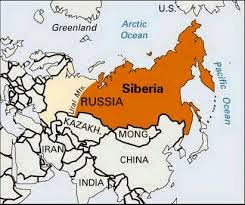Author: Alexander Solzhenitsyn
Rotation #4
Connection Captain
Pages: 106 – 133
While continuing reading the book, I could see some connections that could be made throughout the book. To begin with, the book states that a prisoner called Moldavian was missing while the prisoners were being count, since he was in the shop. Continuing, because Moldavian was missing, all 462 prisoners had to wait for him, because the authorities didn't want anyone to be left out, since he might be doing something he wasn't supposed to do. Now, this sentence reminds me of school because of the fact of waiting. In lower school, when children go to lunch, they often go in a strait line to follow the teacher, and to show respect. Furthermore, if the teacher finds out that a student is missing, he (or she) will stop the line so that he can find the lost child. After the teacher finds the student, they continue going. In this analysis, we can clearly see that both cases connect because both happenings include a leader (authorities and teacher) which have to find a missing person to continue on.
Another thing that shows that school connects to the missing of Moldavian is the fact that both cases contain revolted people. In the book, the waiting prisoners get furious since Moldavian was missing, stopping the waiting prisoners to get to their destination, which was the gates. Adding on, to show their angriness, the prisoners started to curse Moldavian. This event is actually similar to school. When an important class or even school trip is stopped to wait a late student, the students waiting, and even teachers get revolted, since they have to wait a person to arrive so that the class or trip can commence. Overall, we can see that both cases contain people revolted on waiting someone late, or missing.
<Image of someone waiting a long time>
Further ahead reading the book, it shows guards examining people's clothes and accessories for weapons, so that they can prevent them from being hidden and token inside the gates (or anywhere). Continuing, Ivan was examined to see if he had any harmful item, but luckily, he was able to pass through the guard because of a distraction. This happening reminds me of the airport. Whenever someone has to fly to another place, they have to pass through a check-in. In the check-in, people are examined to see if they are carrying any illegal items, meaning that if they contain any illegal item, it will be token and thrown away to cause no harm during the flight. These two cases connect because in both situations, someone is being examined to see if they are taking anything harmful or illegal, so that it can be token to cause no harm to anyone.
<Magnifying Glass>
To wrap things up, these were some connections I had and thoughout the book.



I found the connection you did, was very interesting, not only relating to the specific parts of school, but to school in general. I think that you are right, because I think the guards would be like kindergarten teachers, which they have to take care of the prisoners, and kind of "babysit" them because the guards have to tell them what to do the whole time.
ReplyDeleteDaniel,
ReplyDeleteI want to talk about your first connection because I have talked about it in my post as well as another comment. I did so because it was a very interesting topic for me, as well as others. I think that the connection you made really got me thinking because it wasn't just a connection, it got me thinking about what the author might be trying to tell us. First of all, I knew that Aleksandr Solzhenitsyn was trying to show us that everybody can and are barbaric from time to time. This passage was the first time the author mentions about the prisoners being so cruel to other prisoners. Before it was just guards and officers being aggressive towards the prisoners, but I was shocked how the prisoners started yelling at their own fellow prisoner. After reading your connection, I knew that the author was trying to tell us that evil reveals itself in a situation that may frustrate a group of people. For example, your connection uses school and how a class starts yelling at a student for delaying an activity. Although they may be close friends, you still get the urging hatred towards them. Daniel, do you think that you are this way sometimes? I think that I lose control and yell at other when I am not satisfied.
This comment has been removed by the author.
ReplyDeleteDaniel,
ReplyDeleteI chose to analyze/process the information for your first question/s (the first two.) For your first section, I completely agreed with you. And I can see how the zeks and classmates see the problems too. I wouldn't appreciate having to lose my time because someone is missing. In my opinion it's much worse for the zeks though, as time is much more precious to them (most young kids don't appreciate school too much.) For your second example, though, I didn't really agree. I mean I agree with your example from the book, but not with your connection. Up until now, classes and field trips have never been delayed because someone is not there. It's your responsibility to attend school, if you're not there it's your problem, not the school's, so I don't really see how it applies (unless it's happened to you?)